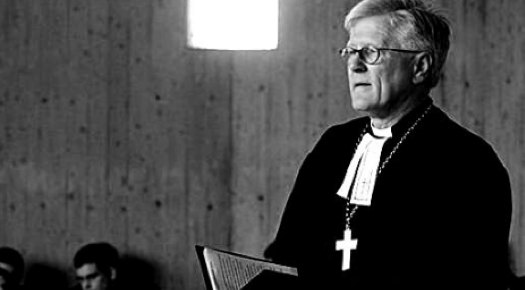
State-funded lessons in Islam would protect malleable children from radical ideologies preached by religious fundamentalists, said the head bishop of the Evangelical Church. He said so while calling on all public schools in Germany to teach the religion.
“Young Muslim pupils should get the chance to critically analyze their religion's traditions,” said Heinrich Bedford-Strohm, chairman of the Evangelical Church in Germany.
Bedford-Strohm, who believes this to be the best way to make young children immune to fundamentalist ideas, called for nationwide Islamic lessons that would teach students the religion on the basis of the German constitution.
“Tolerance, freedom of religion and conscience should be valid for all religions. These rules can be taught in the best way, if religion is seen as part of the state's educational mission,” he said.
The pontiff said Islamic organizations could take up the responsibility of teaching these lessons, the same way in which churches did so in schools.
Currently, most German schools provide lessons in both Catholicism and Protestantism while some also offer instructions in Islam and Judaism.
Representatives from the Roman Catholic Church echoed Bedford Strohm’s proposal; as did Bavaria’s Culture and Education Minister, Ludwig Spaenle who said Germany should give Muslim schoolchildren the chance to learn more about Islam.
Six of Germany’s 18 states already offer lessons in Islam across all public schools.
Bedford-Strohm’s advice came only a fortnight after a survey found that 60 percent Germans believe Islam does not belong in their country. The survey, which was conducted amid growing skepticism towards the religion—especially among center-right and right wing political parties such as Free Democratic Party (FDP) and Alternative for Germany (AfD)—was published on May 12. According to the survey, only 34 percent respondents believe Islam has a place in Germany, which flaunts a total population of two million to four million Muslims.
The figures of this survey show a significant shift in public opinion since 2010, when then President Christian Wulff said in a speech that Islam belongs in Germany. At the time, 49 percent respondents agreed with Wulff while 47 percent disagreed with him. Qualms over Islam also seemed more prevalent among elderly Germans, 71 percent of whom said Islam has no place in Germany. On the other hand, almost 50 percent of Germans aged 18 to 34 said Islam does belong in the country. According to the survey, only three quarters of FDP supporters believe Islam has no place in Germany. Among AfD supporters, the numbers were even steeper at 94 percent.
Half of all Germans also expressed concern over the ways in which Islam may have influenced the number of refugees entering the country. Reportedly, Germany took in as many as 1.1 million migrants in 2015 alone. This is believed to be the biggest influx since World War II. Fear of terrorist attacks by Islamist militants in Germany also clocked high, with 72 percent respondents fearing the same and 25 percent Germans not expressing such concerns.
The survey was conducted by Infratest dimap for Germany’s public broadcaster WDR on May 2 and 3. It included as many as 1,000 respondents.
Photo Credits: Fundamentalismus Debatte
